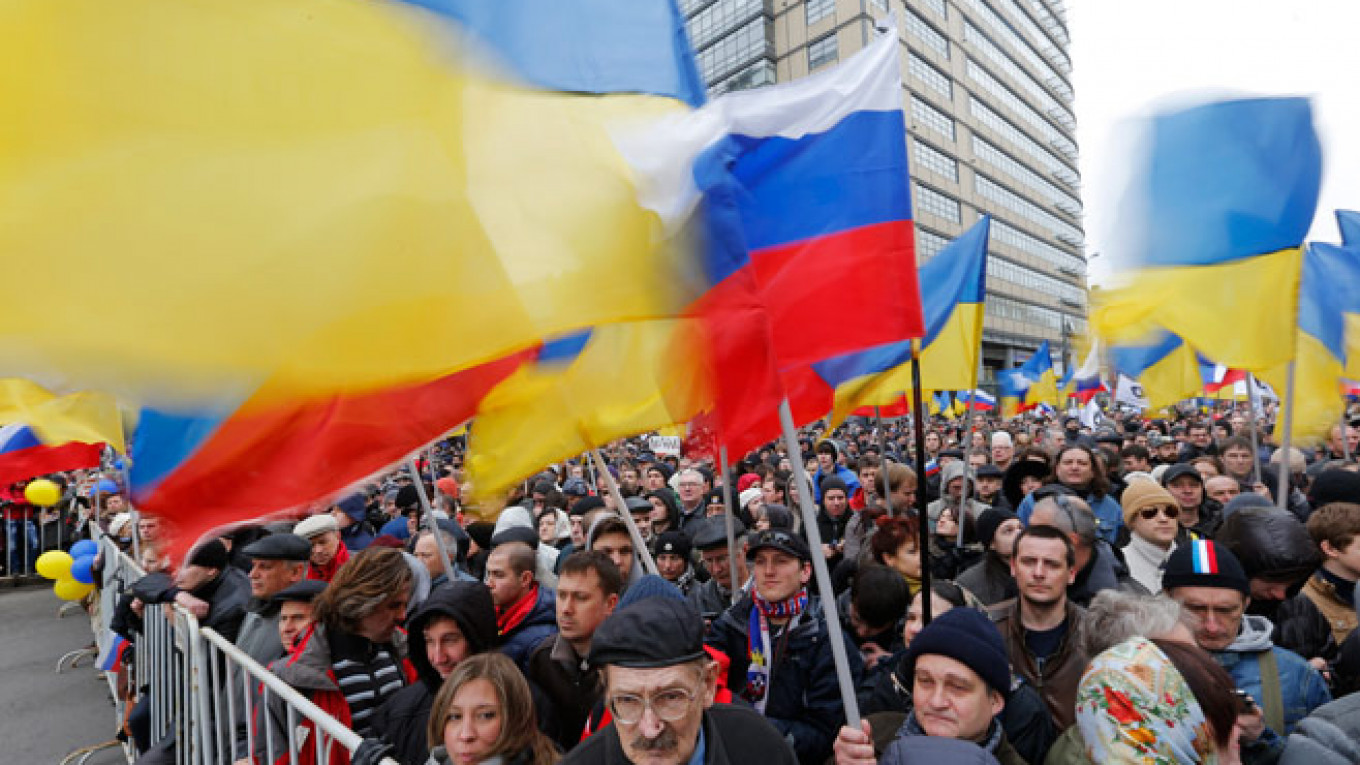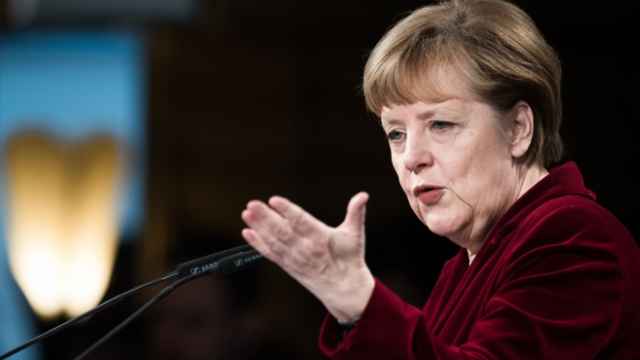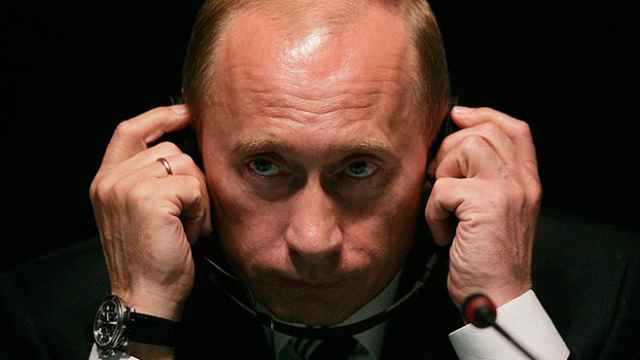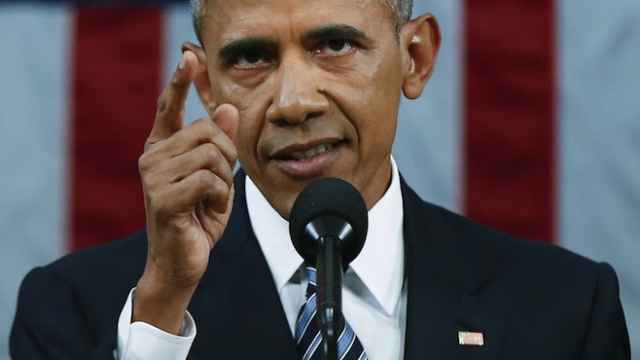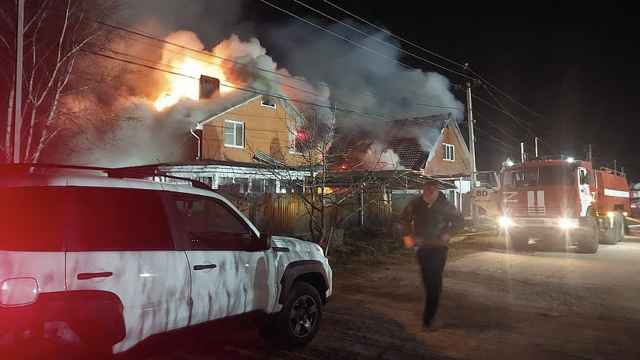The appearance of one of President Vladimir Putin's most enigmatic associates, Vladislav Surkov, at a meeting with U.S. Assistant Secretary of State Victoria Nuland last Friday has sparked speculation that Moscow and Washington are approaching an endgame in Ukraine after two years of conflict.
"That is was Surkov, and not [Deputy Foreign Minister Grigory] Karasin — Nuland's counterpart — is very significant," said foreign affairs expert Vladimir Frolov. "Surkov is a key decision-maker on the Donbass with the authority to make tactical adjustments to the Russian position."
Though he has allegedly been a major player in the crafting and managing of Russia's Ukraine policy over the past two years, Surkov tends to operate behind the scenes. He has officially not taken part in any previous high-level negotiations with the United States, until now.
Analysts said Surkov's involvement indicates Russia is trying now to bring a resolution to the ongoing conflict in Ukraine as a means of seeking relief from Western sanctions — which have combined with a collapse in global oil prices to deal real damage to the Russian economy.
Under the Radar
Both the U.S. State Department and the Russian Foreign Ministry have been relatively silent with regards to the substance of Nuland's meeting with Surkov — a senior Russian government figure and close Putin associate who was among the first placed on the U.S. sanctions list in 2014.
Surkov told reporters that the meeting was essentially a "brainstorming" session on possible compromises that would allow the Minsk II agreements, signed in February 2015, to finally be implemented and the crisis drawn to a close.
State Department spokesman John Kirby said after the meeting on Friday that "[Surkov] is the appropriate person in [the Russian] government [with whom] to have this discussion about Minsk implementation."
Kirby said only that the two discussed "the situation in eastern Ukraine and the need for a full implementation of the Minsk agreements," he said, adding that the talks were constructive and designed to support ongoing international negotiations to bring the crisis to a close.
Endgame on the Horizon?
The nature of Surkov and Nuland's meeting, as well as the lack of official chatter — or even leaks to the media — about the substance of the discussions, indicates that real negotiations are taking place, according to Dr. Mark Galeotti, a Russian foreign and security affairs expert.
"Nuland is not one to spare the Russians blushes, so if they felt they got nowhere, either she would have said so or by now that would have been leaked … and common sense would suggest that Russia ought to be looking for some kind of exit strategy," Galeotti said.
The Donbass project, comprised of the aspirational Luhansk and Donetsk People's Republics, has been an expensive failure. The Ukrainian government in Kiev remains in power, and Russian involvement in the conflict has not resulted in any decisive outcome for the rebels.
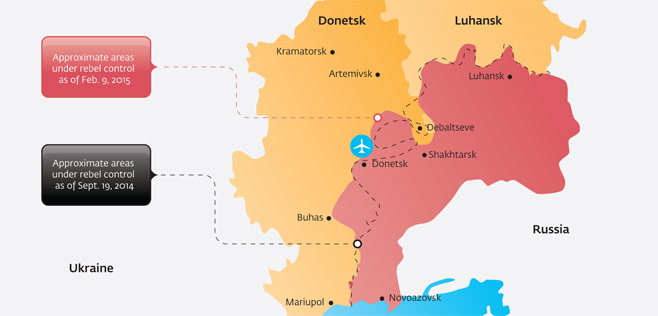
Cease-fire lines in Eastern Ukraine as envisioned by Minsk agreements
And there are other signals that Russia is now getting serious about a deal, such as the appointment of Boris Gryzlov — a senior member of the Russian national security council — as Moscow's representative to the international contact group supervising Minsk implementation.
"[Gryzlov] may not be a decision maker, but he's a trusted executor, and he's someone with a certain amount of political clout — which is what you'd need to seal the deal," said Galeotti.
Although the Kremlin appears to be positioning itself for a deal with the West, obstacles to the implementation of the Minsk II agreement remain. Among the list of potential spoilers are the Russian people, who have spent the last two years watching a media war against neo-fascism in Kiev.
Analysts said that the Kremlin's state media machine would most likely keep Ukraine out of the headlines after presenting a "mission accomplished" scenario in the Donbass — the fascists were defeated, the region is ready to integrate with Kiev.
But Kiev itself may yet undermine a deal. As part of the Minsk II agreements, Ukraine agreed to amend their constitution to provide for the self-governance of the pro-Russian Luhansk and Donetsk regions. In exchange, Ukraine would be given full control of its border with Russia.
The Ukrainian legislature is expected to vote on these amendments in the next several weeks, but Russia has already sounded the alarm that Kiev is not fully living up to its end of the bargain — the law as written is only part of a transitional constitution, Putin said.
According to Alexei Chesnakov, a Russian political analyst and former Kremlin staffer, one of the topics of the Surkov-Nuland meeting was how to fix a Ukrainian election law and law on self-governance for the Donbass. As currently written, "the self-proclaimed republics and Russia will not recognize the amendment," he said.
But Frolov argued that Moscow is likely using the meetings to lobby the West to pressure Kiev into settling the conflict on Moscow's terms — accepting that the regions will remain permanently autonomous in a federalized Ukraine.
"If that proved impossible, then the second option is to get the West to acknowledge that the whole house of cards collapsed through no fault of Russia's, but because Ukraine was unreasonable," he said.
Ukraine, according to this logic, would be responsible for Minsk's failure. Russia, therefore, would be off the hook, and sanctions could be lifted. "My sense is that the latter is more likely than the former," leaving the Donbass conflict in a deep freeze, Frolov concluded.
But there are already signs that Moscow is abandoning the Donbass rebels in order to bring an end to the conflict and Western sanctions. A pro-rebel activist, Vladimir Garnachuk, wrote on his Facebook page Tuesday evening that the Donbass project has lost momentum.
"Already no one is interested in what people there fought and died for. We lost this war. And the bitter heartburn of this loss will be released in the near future," Garnachuk concluded.
Contact the author at [email protected]. Follow the author on Twitter @mattb0401
A Message from The Moscow Times:
Dear readers,
We are facing unprecedented challenges. Russia's Prosecutor General's Office has designated The Moscow Times as an "undesirable" organization, criminalizing our work and putting our staff at risk of prosecution. This follows our earlier unjust labeling as a "foreign agent."
These actions are direct attempts to silence independent journalism in Russia. The authorities claim our work "discredits the decisions of the Russian leadership." We see things differently: we strive to provide accurate, unbiased reporting on Russia.
We, the journalists of The Moscow Times, refuse to be silenced. But to continue our work, we need your help.
Your support, no matter how small, makes a world of difference. If you can, please support us monthly starting from just $2. It's quick to set up, and every contribution makes a significant impact.
By supporting The Moscow Times, you're defending open, independent journalism in the face of repression. Thank you for standing with us.
Remind me later.


